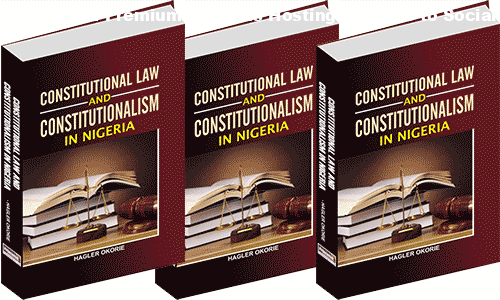Nigeria’s immediate past Independent National Electoral Commission (INEC) Chairman, Prof. Mahmood Yakubu, has acknowledged that while technological innovations have significantly enhanced election processes over the past 10 years, they alone cannot eradicate the persistent flaws undermining the credibility of the country’s polls.
Yakubu’s insights are detailed in his newly released book, Election Management in Nigeria: 2015–2025, a 200-page publication by INEC that chronicles the commission’s operations, triumphs, and hurdles during his two-term tenure from 2015 to 2025. In the foreword, which he penned himself, Yakubu describes the volume as “the first, most comprehensive record of these milestones, lessons, and challenges” of his leadership era.
“The decade between 2015 and 2025 has been one of the most momentous in the history of the management of elections in Nigeria,” Yakubu wrote. “There have been several milestones, many challenges, and useful lessons in the conduct of elections and the management of the process within this period.”
The book highlights pivotal technological advancements introduced under Yakubu’s watch, including the Bi-Modal Voter Accreditation System (BIVAS), the INEC Voter Enrolment Device (IVED), the INEC Results Viewing (IReV) portal, and expanded access to polling units for voters.
Yakubu also emphasized strides in inclusivity, with policies tailored for women, youth, persons with disabilities, and internally displaced persons (IDPs) to broaden participation in the democratic process.
Despite these gains, Yakubu did not shy away from the era’s shortcomings. He listed ongoing issues such as rampant litigation involving the commission, conflicting court orders from concurrent jurisdictions, electoral violence—including attacks on INEC facilities and staff—vote trading, and logistical hurdles that have plagued elections since 2011, often leading to postponements.
“Additionally, technical challenges with equipment and connectivity failures have sometimes hindered the smooth conduct of elections,” he noted, underscoring that technology, while transformative, is no silver bullet for electoral integrity.
To counter these obstacles, INEC implemented reforms such as ramped-up voter education, enhanced training for officials, and fortified partnerships with security agencies to protect voters and personnel. Policies were also refined to govern the ethical deployment of electoral technology.
Looking forward, Yakubu called for sustained reforms and proactive measures. “As the commission looks to the future, the conduct of elections and the management of elections will continue to evolve and present fresh challenges. Such challenges will necessarily either require the consolidation of old, or the formulation of new reforms,” he stated.
He stressed the bedrock of public trust and inclusivity: “The commission must fully embrace both successes and failures, intensify confidence and trust-building measures, expand the drive towards inclusivity, and continuously be ahead in addressing potential threats… Only in and through these can it ensure the conduct of free, fair, credible, and inclusive elections and the consolidation of democracy in Nigeria.”
Appointed by former President Muhammadu Buhari on October 21, 2015, and confirmed by the Senate a week later, Yakubu—a professor of political history and international studies with prior roles such as Executive Secretary of the Tertiary Education Trust Fund—became the first INEC chair to secure a second term in November 2020.
His leadership oversaw the 2019 and 2023 general elections, alongside numerous off-cycle polls. Innovations like BIVAS and IReV aimed to boost transparency, but the 2023 polls faced sharp backlash from parties, civil society, and citizens over logistical breakdowns and alleged irregularities. INEC attributed issues to technical glitches, though results—especially the presidential race—were legally challenged.
Persistent woes included security threats, voter disinterest, supply chain failures, and political meddling. Yet, some analysts credited Yakubu with advancing institutional changes and voter outreach.
Upon President Bola Tinubu’s 2023 inauguration, Yakubu resigned and was honored with the Commander of the Order of the Niger (CON). On Thursday, the National Council of State endorsed Tinubu’s nominee, Prof. Joash Amupitan, as the new INEC chair—pending Senate vetting. Until then, Mrs. May Agbamuche-Mbu serves as Acting Chair.
Yakubu’s reflections have sparked polarized responses from Nigeria’s political landscape.
The Peoples Democratic Party (PDP) and Labour Party (LP) lambasted him for hypocrisy and stewardship failures. PDP Deputy National Publicity Secretary Ibrahim Abdullahi, in a Sunday PUNCH interview, pressed Yakubu on his inaction over a decade: “What serious measures did he take… to substantially address those threats? … Is his observation now an admission of failure and confirmation of the long-held notion of compromise and fraud?”
Abdullahi urged successor Amupitan to shun Yakubu’s “ignoble tendencies.”
LP’s National Publicity Secretary, Obiora Ifoh, labeled the comments “self-indicting,” pinning flaws on “corrupt INEC officials” rather than technological deficits. He alleged premeditated sabotage, citing the pre-2023 ouster of INEC’s tech director: “When he saw that the election was going in a direction he did not want, he pulled the plug.”
African Democratic Congress (ADC) spokesperson Bolaji Abdullahi echoed that technology’s efficacy hinges on human integrity: “Technology is only as good as the human being that manages it.” He cautioned that Amupitan, as a presidential appointee, remains “a suspect until he proves himself otherwise.”
In contrast, New Nigeria Peoples Party (NNPP) National Secretary Dipo Olayokun defended INEC, shifting blame to politicians’ win-at-all-costs ethos: “Most of the blame should go to Nigerian politicians… If we really desire free, fair, and credible elections… we must be interested in the activities of politicians.” He implored Amupitan to prioritize reforms for untainted polls.
The post “Tech Alone Can’t Fix It” — Ex-INEC Chair Yakubu Admits Persistent Flaws Still Undermine Nigeria’s Elections Despite A Decade Of Reforms appeared first on TheNigeriaLawyer.
